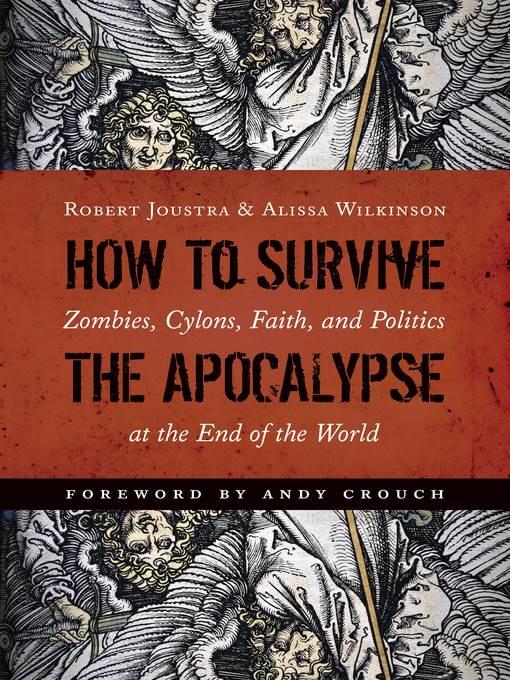
How to Survive the Apocalypse
Zombies, Cylons, Faith, and Politics at the End of the World
- اطلاعات
- نقد و بررسی
- دیدگاه کاربران
نقد و بررسی

March 14, 2016
“Just turn on the television... Today, apocalypse sells like mad,” write Joustra (The Church’s Social Responsibility) and Wilkinson (chief film critic at Christianity Today). Instead of lamenting secularized versions of the end times, however, the authors engage with them through an in-depth theological critique of popular culture. They note that the idea of future chaos followed by restoration has been a religious theme for millennia, starting with the first apocalyptic text from ancient Egypt. After a fascinating, breakneck rundown of utopian versus dystopian notions from biblical times onward, Joustra and Wilkinson zero in on recent movies and—especially—TV shows that reflect our vulnerability and suspicion of metanarratives. Beware plot spoilers! Moving from the “postmodern fairy tale” of Game of Thrones and the antiheroes of Breaking Bad and Mad Men to Scandal’s “moral apocalypse,” they skillfully derive lessons about power and significance. It is refreshing to see a willingness to find the best in secular art, rather than a blanket dismissal of it. Some critical jargon and a heavy debt to philosopher Charles Taylor mean this will likely appeal to academics more than lay readers.

July 1, 2016
Everyone loves an apocalypse. Ever since humans have learned to tell stories, they have told of Ragnarok, Armageddon, or an impending zombie horde. Apocalyptic themes are rampant in popular culture, from the The Walking Dead to The Hunger Games. Why is the apocalypse such a popular trope, and what does it mean that consumers cannot get enough zombies? Drawing extensively on the work of Canadian philosopher Charles Taylor, the authors clearly explain what they mean when they talk about apocalypse and the secular age. The book clearly contrasts premodern understandings of the self with current understandings. Once understandings of the self in contemporary society are established, the authors pair samples from pop culture with philosophical concerns of our current secular age. Lest readers think this is only for fantasy fans, Scandal and House of Cards get the apocalyptic consideration as well. As the authors note, apocalypse tells us who we are as humans. A thought-provoking book that, despite its seemingly dire subject matter, leaves plenty of room for hope.(Reprinted with permission of Booklist, copyright 2016, American Library Association.)




دیدگاه کاربران